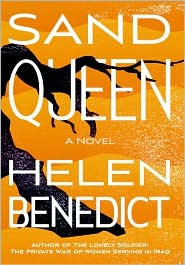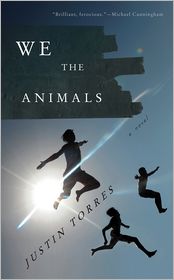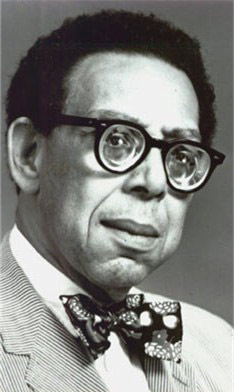Dr. Bartlett began with Tolstoy’s legacy: while he is best known today for four very long novels (including War and Peace and Anna Karenina), he also compiled a huge religious and spiritual body of writings in the 1870s and 1880s that was as popular as his fiction at the time. He translated the Gospels and “reinvented Christianity in his own image,” creating for the Russian masses a new narrative of the unrelenting search for the truth and meaning of life--and inspiring Mahatma Gandhi and other pacifists with his famous book The Kingdom of God is Within You. Not surprisingly, he was excommunicated from the church in 1901.
Bartlett described him as a “walking one man reformation” in a country that had never had a reformation or a renaissance--back in the 1880s, she pointed out as an example, that “it was a bit cranky to be a vegetarian.” Throughout her research, she was stunned by what a prolific “dissident in imperial Russia” he was. (As struck by our speaker was Lenin who penned seven essays about him including “Leo Tolstoy as the Mirror of the Russian Revolution,” in 1908, which promptly became required reading in schools all over the country.) Over time, however, and especially posthumously, he has been a “rather difficult figure to deal with.” 2010 was Tolstoy’s centenary and Chekov’s 150 year anniversary, and while the former was barely noted, the latter involved President Medvedev making a personal visit to Chekov’s hometown of Taganrog.
Prof. Vapnyar resurrected him for us with less technical, more personal respect, nostalgic for a childhood growing up with his books. To her and her generation, Tolstoy was always “more for us than just a writer,” and War and Peace, her favorite novel, was simply “beyond literature.” Fifteen years old and reading the book, she had one of the most significant revelations of her life: “I am going to die.” She admired how truthfully Tolstoy treated the “grandeur of the events” of life and death. Bartlett added that Tolstoy’s “unstinting honesty,” “enormously long sentences” and complete avoidance of rhetorical devices made for a completely unique literary language. Ever the rebel, Tolstoy did not merely play with language, he reconfigured it.
Therefore it did not seem surprising to hear Vapnyar confess to measuring “what happened in my life by Tolstoy.” Living a quiet childhood, “I had to fall in love with literary characters,” and found herself comparing real life lovers to the character of Prince Andre--not necessarily a pleasant undertaking. Bartlett concurred: Tolstoy was a “genius for universalizing” and “going into the tiny gradations of human experience.” She admired how nakedly he worried about “the thought of his not being alive” and the strength that this fear gave to his writing.
“It’s not that Tolstoy resolves something...that’s not what literature is supposed to do,” Vapnyar explained, alluding to the questions Tolstoy grappled with in literature and in spirituality. “You come to the fact that peace is impossible” because “he doesn’t lie to you.” Having extensively taught Tolstoy, Bartlett admitted that “you get a bit fed up with his moralizing,” but she happily rediscovered her love for him when writing his biography.
 A “very mercurial young man,” Tolstoy seemed to steal even language from other nations, speaking “absolutely flawless French,” enjoying Dickens and Trollope (he named his dogs after Dickensian characters) and outdoing language professors in Greek and Hebrew after just a few months studying the languages. Bartlett was satisfied sticking to Russian. “For me, translating is one of the noblest activities there is,” she said, and praised Russian for being such an intimate language. To read Chekhov and Tolstoy in their native tongue is “just a different world...you feel closer to the writer.” Here, Bartlett shared another tidbit from her research: Chekhov, poor and of the lower class, wrote his short, simply sentences in tiny, “modest” handwriting. Tolstoy, however, was an aristocrat who chose to identify with the peasants, and employed “huge, very aristocratic” handwriting.
A “very mercurial young man,” Tolstoy seemed to steal even language from other nations, speaking “absolutely flawless French,” enjoying Dickens and Trollope (he named his dogs after Dickensian characters) and outdoing language professors in Greek and Hebrew after just a few months studying the languages. Bartlett was satisfied sticking to Russian. “For me, translating is one of the noblest activities there is,” she said, and praised Russian for being such an intimate language. To read Chekhov and Tolstoy in their native tongue is “just a different world...you feel closer to the writer.” Here, Bartlett shared another tidbit from her research: Chekhov, poor and of the lower class, wrote his short, simply sentences in tiny, “modest” handwriting. Tolstoy, however, was an aristocrat who chose to identify with the peasants, and employed “huge, very aristocratic” handwriting.Bartlett taught us that the Russian language has two words for truth: pravda refers to daily, common truths while ista refers to the deep truth. Tolstoy unanimously wrote in quest of the latter, whether he was interpreting religious teachings or divining some of the longest works of literature known today, and Bartlett connected this single-mindedness to “something perhaps innately Russian about this idea of rebellion.” Vapnyar was more weary of such writing. “I don’t think people are looking for deeper truth in literature anymore. Period,” she said.
But all is not lost. While Vapnyar insisted that as a writer she is “absolutely not” influenced by Tolstoy, she gracefully concluded that: “there are some writers you can’t learn from because they are too perfect.” Knowing this, and hearing Bartlett say that “no one who writes about Tolstoy can cover everything,” it might be enough for new writers to know that Tolstoy is better as inspiration than as someone to aspire to.



















